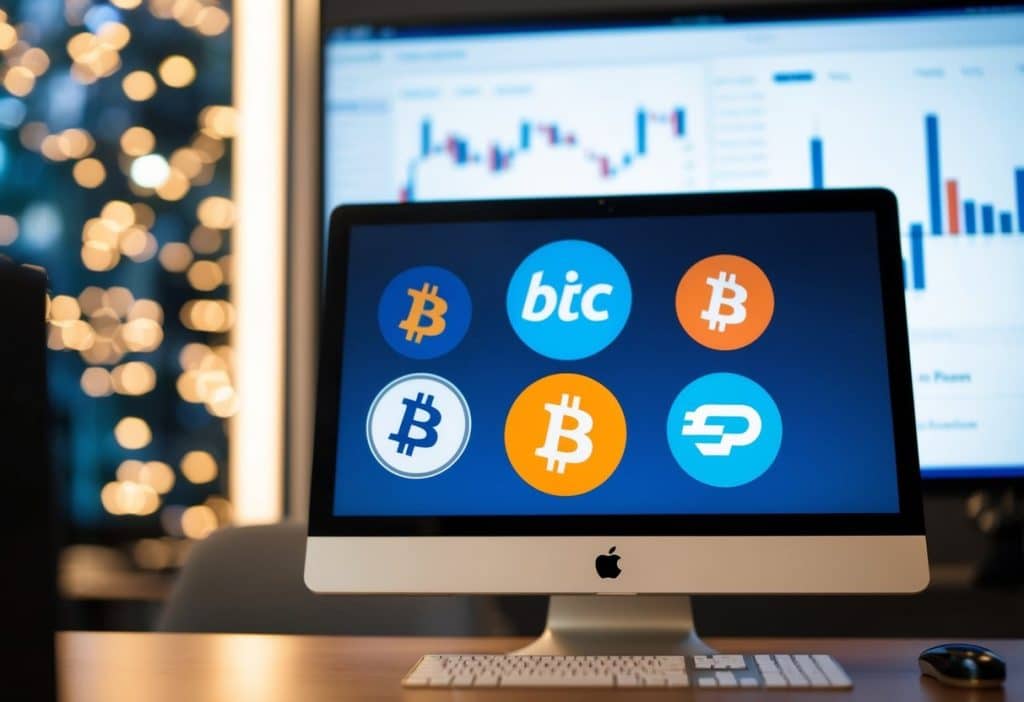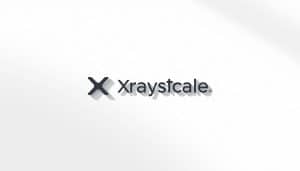Binance US stands out for day trading with low fees. You’ll find quick order execution and deep liquidity pools. Coinbase Pro offers a clean interface for beginners. Their security features protect your assets, though fees run higher than competitors.
Kraken shines with margin trading and 24/7 support. You get access to 100+ coins and advanced trading tools.
Key features to look for when choosing the best crypto exchange:
- Low trading fees
- Strong security measures
- Available coins
- Customer support quality
- Withdrawal options
Watch This Quick Video To Learn About Crypto Exchanges
This 2-minute video can teach you about the top crypto exchanges in 2025.
You’ll see detailed platform comparisons and key features laid out in a clear, visual format.
What you’ll learn:
- Popular trading platforms and their unique benefits
- Fee structures and trading limits
- Security features that protect your funds
- User interface demonstrations
The video format makes complex exchange features easy to grasp. You might find it helpful to pause at certain points to take notes on specific platforms that match your trading needs.
How to Choose the Right Crypto Exchange
Top cryptocurrency trading platforms offer different features that match different trading styles.
You’ll want to check if the exchange supports your preferred digital currencies – some platforms like Bitmart list over 1,700 cryptocurrencies while others stick to major coins.
Think about how you’ll fund your account. Most exchanges accept bank transfers, but you might need credit card or digital wallet options.
Fees can really add up – trading costs typically range from 0.1% to 1.5% per transaction. Your location matters too. Some exchanges don’t serve certain countries, so verify you can actually use the platform before signing up.
Keep these key points in mind:
- Check supported payment methods
- Compare trading fees
- Verify country restrictions
- Look at coin selection
- Test the user interface
- Read security features
Start with small trades while you get comfortable with a new platform. You might want to spread funds across 2-3 exchanges to reduce risk.
Converting Crypto to Regular Money
You can turn your Bitcoin and other cryptocurrencies into cash through cryptocurrency exchanges. These online platforms let you trade digital coins for dollars, euros, or other regular money.
Pick your exchange carefully. Each one has different fees and trading limits. Some charge 1-3% per transaction, while others might take up to 5%. Make sure to check what cash-out options work in your country.
Trading fees add up fast. Your best bet is comparing 2-3 exchanges before picking one. Look at withdrawal limits too – some only let you take out $10,000 per day.
Types of Trading Platform
Centralized exchanges work like traditional stock markets, with a company managing your trades and holding your money. Think of it as a digital bank for crypto.
Decentralized platforms connect you directly with other traders. You keep control of your coins.
Some crypto platforms only let you bet on price changes – you never actually own any coins. Like playing the stock market without holding shares.
Trading Platform Types:
- Direct user-to-user trading
- Company-managed exchanges
- Price speculation platforms
Buying Through Crypto Brokers
Cryptocurrency brokers offer you a direct path to buying digital assets. While you’ll pay slightly higher fees, the process is straightforward and beginner-friendly.
Popular Broker Options:
- Coinbase: Perfect for new traders
- Coinmama: Known for quick purchases
Think of brokers as your personal crypto shopkeeper – they handle the complex stuff while you focus on buying and selling. You just pick what you want and pay the marked-up price.
Major Cryptocurrency Exchange Statistics for 2025
| k | Exchange | Avg. Daily Spot Volume (USD) | Market Share | Notable Facts |
|---|---|---|---|---|
| 1 | Binance | ~$12.5B | ~34% | Still the largest globally despite tighter regulation; strong liquidity in BTC, ETH, and altcoins. |
| 2 | OKX | ~$5.8B | ~16% | Gaining share in Asia; strong derivatives presence. |
| 3 | Coinbase | ~$4.4B | ~12% | Leading U.S. exchange; large institutional ETF-related flows. |
| 4 | Bybit | ~$4.1B | ~11% | Popular for derivatives; expanding spot market. |
| 5 | Kraken | ~$2.6B | ~7% | Strong in Europe & U.S.; focuses on regulatory compliance. |
| 6 | Bitget | ~$1.9B | ~5% | Aggressive marketing and derivatives offerings. |
| 7 | KuCoin | ~$1.5B | ~4% | Known for altcoin listings, retail-focused. |
Digital Asset Trading Hubs
Trading Across Multiple Markets
You’ll find that modern trading platforms connect you to both buyers and sellers through automated systems. These platforms make it simple to trade cryptocurrencies without talking directly to other traders. Trading costs stay low – often just 0.1% to 0.5% per trade.
The platforms offer lots of useful tools. You can set up limit orders and stop-losses to protect your investments. Advanced charting helps you spot price patterns. Just remember – orders might take time to fill if nobody’s selling at your price.
Want to trade Bitcoin against the US dollar? Or maybe ETH/BTC pairs? Most platforms let you choose from dozens of trading pairs. You can even use technical indicators like moving averages and RSI to time your trades better.
Popular Trading Platforms
Coinbase, Binance, and Kraken stand out as trusted names in crypto trading. These platforms handle billions in daily volume. Each offers something unique:
Top Multi-Asset Platforms:
- Coinbase: Great for beginners, supports 100+ assets
- Binance: Lowest fees, most trading pairs
- Kraken: Strong security, good for advanced traders
- eToro: Copy trading features
- Uphold: Easy bank transfers
Some platforms now offer CFD trading too. With CFDs, you bet on price moves without owning actual crypto.
Think of it like betting on gold prices instead of buying gold bars. Just know that CFDs can be risky – especially with leverage that lets you trade more than your account balance. And if you’re in the US, CFD trading isn’t allowed.
You might want to start with a basic platform first. Practice with small amounts. Get comfortable reading price charts and setting different order types. The fancy features will make more sense once you’ve got the basics down.
Trading on Peer-to-Peer Networks
P2P trading platforms let you connect with other traders directly. You can buy and sell Ethereum, altcoins, and other crypto without going through a central exchange.
Popular platforms like LocalCoinSwap and Paxful give you flexible payment options. You can use bank transfers, gift cards, or cash. The prices are often negotiable too.
Be careful though – trading with strangers brings risks. Make small test transactions first. Only trade with users who have strong reputation scores and verified accounts.
Top Cryptocurrency Trading Platforms and Exchanges in 2025
Popular Digital Asset Brokers
Coinbase and Kraken lead the pack when it comes to trusted brokers. You’ll find competitive fees starting at 0.06% on many platforms, with some offering zero-fee promotions for new users.
Trading pairs matter a lot. Look for platforms that give you plenty of options. Some brokers let you trade over 2,000 different pairs – that’s a huge advantage when you want to diversify.
Consider these key features before choosing a broker:
- Fee structures (0.06% to 0.5% typical range)
- Available trading pairs
- Deposit/withdrawal methods
- Security features
- Customer support quality
Digital Currency Trading Venues
Binance dominates the trading space with the highest volume. You’ll want to check out their spot trading – perfect for buying and selling coins directly. Stop-loss orders can save your investment. Set them up to automatically sell if prices drop too far. Most good platforms offer these basic protections.
Trading tips:
- Start small with familiar coins
- Use limit orders to control entry prices
- Keep some funds in stable coins
- Monitor trading volumes
Peer-to-Peer Trading Networks
P2P platforms connect you directly with other traders. You can often find better prices this way, though it takes more work. Payment options usually include:
- Bank transfers
- Cash deposits
- Payment apps
- Gift cards
- Local payment methods
Trade carefully on P2P networks. Always use escrow services and verify your trading partner’s reputation score.
Multi-Asset Trading Systems
Cross-platform trading through sites like eToro lets you mix crypto with stocks and forex. This gives you more ways to spread risk. Some advanced features you’ll find:
- Copy trading tools
- Multiple order types
- Portfolio tracking
- Risk management tools
- Advanced charting
Focus on building a balanced strategy. Try splitting your trades between different asset types based on your risk tolerance.
Top Crypto Exchanges in 2025
| Exchange | Best For | Fees (Maker/Taker) | Key Features | Regulation & Security |
|---|---|---|---|---|
| Binance | High liquidity & low fees | 0.10% / 0.10% | 500+ coins, staking, futures, BNB discounts | Global presence; regulatory scrutiny in some regions |
| Kraken | Security & low fees | 0.16% / 0.26% | Advanced trading tools, staking, fiat support | Regulated in multiple countries; strong security track record |
| Coinbase | Beginners | 0.60% / 0.60% | User-friendly interface, educational resources, mobile app | Fully regulated in the U.S.; insured custodial wallets |
| Gemini | Security & compliance | 0.20% / 0.40% | Advanced trading platform, staking, insurance coverage | Licensed in U.S.; SOC 2 Type 2 compliant |
| Bybit | Derivatives & leverage | 0.10% / 0.10% | High leverage, derivatives, perpetual contracts | Based in Dubai; experienced a significant security breach in 2025 |
| Crypto.com | Mobile trading | Varies | Wide range of services, mobile app, staking, credit cards | Licensed in multiple jurisdictions; offers insurance on custodial assets |
| Bitstamp | Trusted exchange | 0.30% / 0.40% | Long-standing reputation, fiat support, cold storage | Regulated in the EU and U.S.; strong security measures |
| Phemex | Zero withdrawal fees | 0.30% / 0.40% | 350+ coins, trading bots, zero withdrawal fees | Offers competitive fees and features |
| Strike | Bitcoin-only trading | 0% / 0% | Zero fees on Bitcoin transactions and withdrawals | Focused on Bitcoin; offers low spreads |
| River | Bitcoin-focused | 0% / 0% | Zero fees, low spreads, institutional-grade custody | Specializes in Bitcoin; offers low spreads |
Recommendations Based on Your Needs
- Beginners: Coinbase offers a user-friendly interface with educational resources, making it ideal for those new to cryptocurrency trading.
- Low Fees & Advanced Tools: Kraken provides competitive fees and advanced trading features, suitable for experienced traders.
- Security & Compliance: Gemini is known for its strong security measures and regulatory compliance, ensuring a safe trading environment.
- Mobile Trading: Crypto.com offers a comprehensive mobile app with various services, catering to traders on the go.
- Bitcoin-Only Trading: Strike and River specialize in Bitcoin trading with zero fees, appealing to Bitcoin enthusiasts.
Considerations
- Regulatory Environment: Ensure the exchange complies with regulations in your jurisdiction to avoid legal issues.
- Security Measures: Opt for exchanges with strong security protocols, including two-factor authentication and insurance coverage.
- Fee Structures: Compare fee structures to find an exchange that aligns with your trading volume and frequency.
- Supported Coins: Verify that the exchange supports the cryptocurrencies you’re interested in trading.
Crypto Exchanges by 24-Hour Trading Volume (2025)
| Exchange | 24h Trading Volume (USD) | Key Highlights |
|---|---|---|
| SuperEx | $163.61B | Dominant leader with over 10x Binance’s volume; suggests a major shift in trader preference and possible regional influence. |
| Binance | $15.41B | Continues to be a major player in the crypto exchange market. |
| 4E | $3.52B | Emerging exchange gaining traction. |
| BiFinance | $3.32B | Notable for its user-friendly interface and competitive fees. |
| HTX | $2.99B | Formerly Huobi, maintaining a strong presence in the market. |
| Darkex | $2.95B | Known for its focus on privacy and security features. |
| Zedcex | $2.59B | Gaining popularity among traders seeking diverse assets. |
| Bybit | $2.47B | Continues to be a frontrunner in the crypto exchange market. |
| MEXC | $2.45B | Offers a broad selection of altcoins and competitive fees. |
| OKX | $2.30B | Known for its advanced trading tools and services. |
Key Features to Look for in Crypto Exchanges
The most trusted crypto exchanges offer secure and reliable trading platforms with strong security measures. You’ll need to check which coins they support – not every platform lets you trade the newest altcoins.
Payment options matter big time. Most exchanges take bank transfers, but fees can vary wildly. Credit cards might seem convenient but watch out – you could pay up to 5% extra in fees. Bank transfers usually cost less than 1%.
Trading limits can make or break your strategy. Some exchanges cap daily purchases at $10,000 while others let you trade millions. Your verification level affects these limits too.
Core Security Features:
- Two-factor authentication (2FA)
- Cold storage for most funds
- Regular security audits
- IP address whitelisting
- Email confirmations for withdrawals
Watch for These Red Flags:
- Missing insurance coverage
- Weak customer support
- No regulatory compliance
- Limited security features
- Poor user reviews
User experience really shapes your trading. Clear navigation and intuitive interfaces help you avoid costly mistakes.
The best platforms let you place orders in just 2-3 clicks.
Fee Structure Breakdown:
| Fee Type | Typical Range |
|---|---|
| Deposits | 0-1.5% |
| Trading | 0.1-0.5% |
| Withdrawals | 0.0005-0.001 BTC |
Liquidity is crucial – you want enough trading volume so your orders fill quickly. Check the 24-hour volume for your preferred trading pairs. Anything under $1 million daily volume could mean slow trades and wider spreads.
Keep your private keys safe. Any exchange holding your coins means you don’t fully control them. Consider moving large amounts to a personal wallet after trading.
Identity Verification Requirements
You’ll need to prove who you are before trading on most crypto exchanges. The KYC process builds trust between users and exchanges through several key steps. You must submit a government ID – think passport or driver’s license.
Next comes proof that you live where you say you do, usually with a recent utility bill or bank statement. Some platforms might ask about your income too. These rules exist to stop financial crimes.
Exchanges that skip identity checks are risky and might not follow the law. If privacy matters to you, look for regulated platforms with strong security features like two-factor authentication.
Your personal info stays protected through encryption and strict data handling rules. Most legitimate exchanges follow anti-money laundering guidelines set by authorities like the Financial Conduct Authority.
Core Trading Platform Tips
Choose reliable cryptocurrency exchanges that match your trading style and risk tolerance. Your money deserves strong security measures and smooth transactions. Some specialized platforms excel at specific trading needs:
- Derivatives Trading: Pick platforms like Margex for futures and options
- Long-term Holding: Use wallet-focused exchanges like Exodus
- Day Trading: Look for low fees and advanced charts
Watch for volatility risks and keep most funds in secure cold storage. Start with small test transactions when trying new exchanges. Set clear stop-losses to protect your investment. Build your strategy gradually. Learn the basic features before attempting complex trades. Your success depends on picking tools that fit your goals.
Overview of the Crypto Exchange Landscape in 2025
1. Diverse Exchange Models
- Crypto exchanges include Centralized (CEX), Decentralized (DEX), and Hybrid platforms, catering to both casual users and advanced traders.
2. Market Trends and Trading Activity
- Trading volumes are rising, fueled by ETFs and institutional participation.
- Market remains volatile, requiring careful risk management.
3. Regulatory Developments
- The U.S. SEC has streamlined ETF approvals.
- Globally, regulations are becoming clearer, balancing innovation and investor protection.
4. Security and User Protection
- Exchanges invest in advanced security protocols.
- User education on best practices is increasingly emphasized to prevent cyber threats.
5. Global Adoption and Market Expansion
- India and the U.S. lead in adoption; emerging hubs include the Middle East.
- Increased institutional involvement and favorable regulations drive expansion.
6. Future Outlook
- AI and blockchain innovations will enhance trading and platform features.
- Integration of DeFi with traditional finance is expected.
- Emphasis on sustainability and energy-efficient practices is growing.
Tips for Choosing the Right Crypto Exchange
- Regulation & Security
- Use licensed, regulated exchanges.
- Look for 2FA, cold storage, insurance, and a strong security record.
- Avoid platforms with repeated hacks.
- Supported Coins & Tokens
- Ensure the exchange lists the cryptocurrencies you want.
- Check if it quickly adds new or emerging coins.
- Fees & Costs
- Compare trading, deposit, and withdrawal fees.
- Watch out for hidden fees like spreads or limits.
- Liquidity
- High liquidity ensures quick trade execution with minimal slippage.
- Popular exchanges usually offer better pricing and faster transactions.
- User Experience
- Choose intuitive interfaces for beginners or advanced tools for pros.
- Check mobile app quality and customer support responsiveness.
- Deposit & Withdrawal Options
- Ensure fiat currency support if needed.
- Review withdrawal limits and transaction speeds.
- Reputation & Reviews
- Research user feedback and community reputation.
- Prefer exchanges that are transparent about operations and audits.
- Advanced Features (Optional)
- Features like stop-loss, margin trading, staking, and lending.
- Analytical tools for market insights and smarter trading decisions.
Common Questions About Bitcoin Trading
When did Bitcoin start trading?
Bitcoin started trading in January 2009, with its first recorded market price appearing in July 2010 at about $0.003.
Picking the Right Bitcoin Platform for Your Needs
Look for platforms with clear fee structures – you’ll want trading fees under 0.5% and reasonable withdrawal charges.
Security is non-negotiable: proper trading platforms use cold storage and insurance. Check daily trading volume (aim for $100M+) and user reviews.
Key Features to Check:
- Multi-factor authentication
- Insurance on deposits
- 24/7 customer support
- Integration with DeFi protocols
- Smart contract functionality
Keeping Your Bitcoin Trading Safe
You need multiple security layers. Enable two-factor authentication right away. Never keep large amounts on exchanges – move them to a hardware wallet after trading. Watch for fake websites trying to steal your login info.
Essential Security Steps:
- Use a unique, complex password
- Enable account notifications
- Verify withdrawal addresses twice
- Back up recovery phrases offline
Understanding US vs Global Bitcoin Markets
US exchanges follow stricter rules about trading and verification. You’ll need more identity documents, but get better legal protection. Global platforms might offer more coins and features, with higher risks.
Smart Ways to Choose Your Trading Platform
Pick exchanges that match your goals. Day trading? You need low fees and quick executions. Long-term holding? Focus on security and easy bank transfers. Check if they support your preferred trading pairs and DeFi integrations.
Measuring Exchange Size and Market Share
Trading volume decides market leaders. Right now, Binance handles the most trades daily. But size isn’t everything – smaller exchanges might offer better service or unique features for your needs.
Getting Started with Bitcoin Trading
Begin with a well-known exchange that offers educational resources. Create your account (you’ll need ID and proof of address). Start small – maybe $100 to learn the interface. Use limit orders to control your entry prices. Connect with other traders through the platform’s community features.
First Steps:
- Research exchange options
- Verify your identity
- Test with small amounts
- Learn basic trading tools
- Join trading communities
How Recent Regulatory Changes Impact Crypto Markets
New cryptocurrency regulations in 2025 mean you’ll need to adjust your trading approach. The SEC now requires stricter KYC processes and regular audits of exchange reserves. You might notice longer verification times, but these changes protect your assets better.
- Enhanced security measures required
- Mandatory proof of reserves
- Regular third-party audits
- Stricter identification checks
Finding New Trading Platforms When Markets Change
You’ll find reliable cryptocurrency exchanges popping up in different regions as regulations shift. When one market tightens rules, others often become more welcoming. Keep a list of 2-3 backup exchanges ready.
Top Alternative Markets:
- Singapore
- Dubai
- Switzerland
- Portugal
Different Exchange Types for Different Needs
Trading platforms come in various forms, and picking the right one makes a huge difference. Order book exchanges work best for active traders, while peer-to-peer platforms suit those who value privacy.
Order Book Exchanges:
- Real-time pricing
- High liquidity
- Lower fees
P2P Platforms:
- Direct trader connections
- Flexible payment options
- More privacy
Smart Ways to Handle Bitcoin Trading Changes
Your trading strategy needs to stay flexible. Set up accounts on multiple exchanges, keep detailed records of your trades, and always use two-factor authentication. Price alerts help you catch important moves without watching charts all day. Learn these strategies above so you can finally find the best crypto exchange that suits your needs.
FAQS
1. What is the best crypto exchange in 2025?
The best exchange depends on your needs:
- Beginners: Coinbase offers a user-friendly interface and strong security.
- Low fees: Kraken provides competitive fees and advanced trading tools.
- Security: Gemini is known for its robust security measures.
- Mobile trading: Crypto.com offers a comprehensive mobile app with various services.
- Bitcoin-only trading: Strike and River specialize in Bitcoin trading with zero fees.
Are crypto exchanges regulated in 2025?
Yes, many exchanges are regulated in multiple jurisdictions. For instance, Coinbase and Gemini are licensed in the U.S., while the UAE’s Virtual Assets Regulatory Authority (VARA) oversees exchanges operating in the Emirates.
How do I ensure the security of my funds?
Choose exchanges with strong security features such as two-factor authentication (2FA), cold storage for funds, insurance coverage, and a history of secure operations.
What cryptocurrencies can I trade in 2025?
Most major exchanges support popular cryptocurrencies like Bitcoin (BTC), Ethereum (ETH), and Binance Coin (BNB). Additionally, emerging tokens and stablecoins are increasingly available.
What are the typical fees on crypto exchanges?
Fees vary by platform and trading volume. For example, Crypto.com offers a maximum maker/taker fee of 0.0750%, with discounts available for large trades and CRO token holders.
Can I trade on mobile devices?
Yes, many exchanges offer mobile apps for iOS and Android, allowing you to trade on-the-go. Crypto.com and Coinbase are notable examples.
What is the process for depositing and withdrawing funds?
Deposits and withdrawals can be made via bank transfers, credit/debit cards, or cryptocurrency transfers. Limits and processing times vary by platform and payment method. For instance, Crypto.com offers withdrawal limits up to $100,000 daily, depending on the method.
Are there any new trends in crypto trading?
Yes, trends include the rise of decentralized finance (DeFi) 2.0, tokenized real-world assets, and AI-linked tokens. Additionally, the approval of cryptocurrency exchange-traded funds (ETFs) is expected to increase institutional investment.
How can I protect myself from crypto scams?
Use exchanges with strong security protocols and be cautious of unsolicited offers. Platforms like Best Wallet offer scam detection tools and educational resources to help users navigate the crypto space safely.
What should I consider when choosing a crypto exchange?
Consider factors such as regulation, security features, supported cryptocurrencies, fees, user experience, and customer support. Additionally, ensure the platform aligns with your trading goals and risk tolerance
























 Bitcoin
Bitcoin  Ethereum
Ethereum  Tether
Tether  XRP
XRP  USDC
USDC  TRON
TRON  Lido Staked Ether
Lido Staked Ether  Dogecoin
Dogecoin  Figure Heloc
Figure Heloc  Cardano
Cardano  WhiteBIT Coin
WhiteBIT Coin  Bitcoin Cash
Bitcoin Cash  Wrapped stETH
Wrapped stETH  Wrapped Bitcoin
Wrapped Bitcoin  USDS
USDS  Binance Bridged USDT (BNB Smart Chain)
Binance Bridged USDT (BNB Smart Chain)  Chainlink
Chainlink  Wrapped eETH
Wrapped eETH  Monero
Monero  WETH
WETH  Hyperliquid
Hyperliquid  Stellar
Stellar  LEO Token
LEO Token  Zcash
Zcash  Ethena USDe
Ethena USDe  Coinbase Wrapped BTC
Coinbase Wrapped BTC  Litecoin
Litecoin  Sui
Sui  Avalanche
Avalanche  sUSDS
sUSDS  Hedera
Hedera  Shiba Inu
Shiba Inu  Dai
Dai  USDT0
USDT0  Mantle
Mantle  PayPal USD
PayPal USD  Toncoin
Toncoin  World Liberty Financial
World Liberty Financial  Cronos
Cronos  Ethena Staked USDe
Ethena Staked USDe  Uniswap
Uniswap  Polkadot
Polkadot  MemeCore
MemeCore  USD1
USD1  Aave
Aave  Canton
Canton  Rain
Rain  Bitget Token
Bitget Token